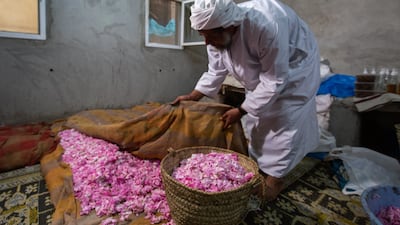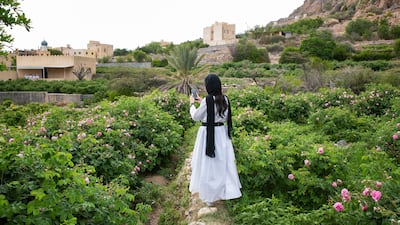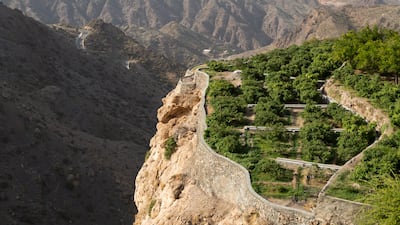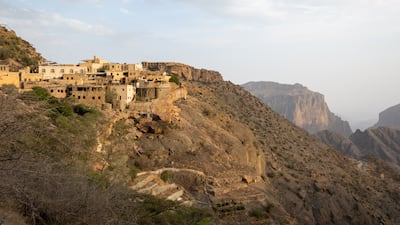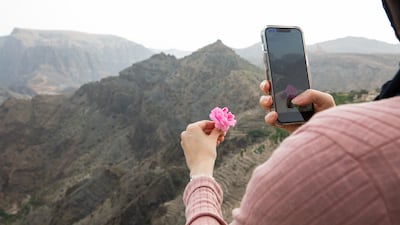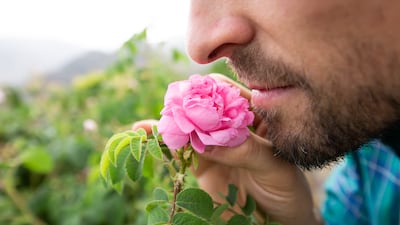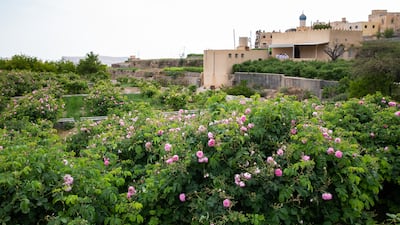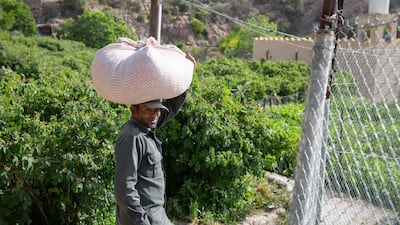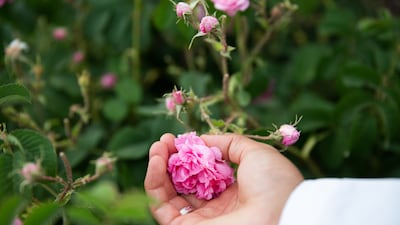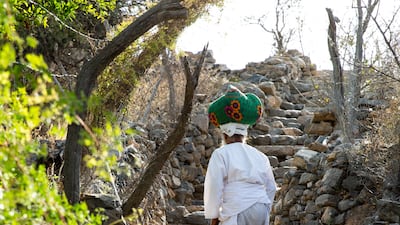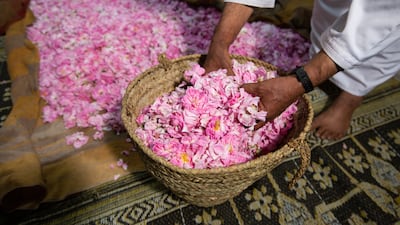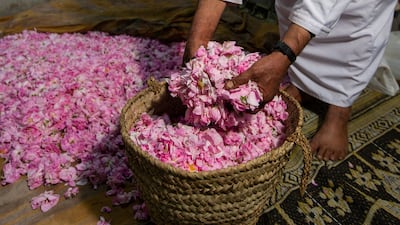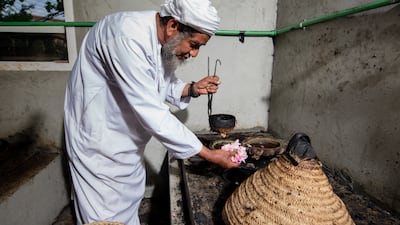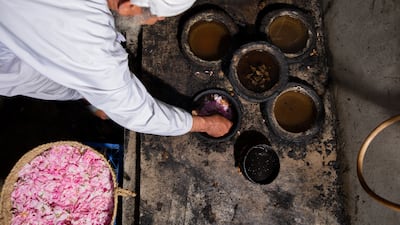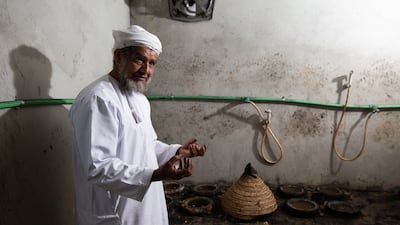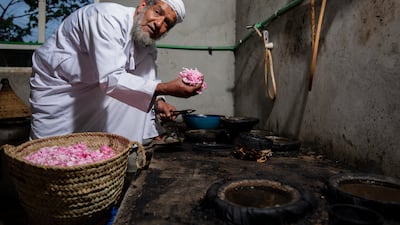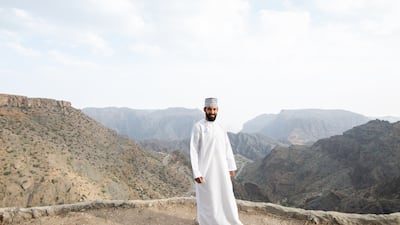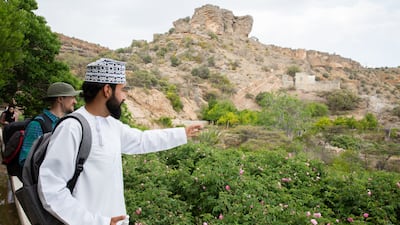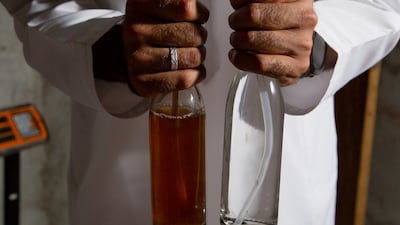Every year, during the harvest season of March and April, the mountains of Jebel Akhdar in Oman come alive with the scent of roses. The roses, which begin blooming in March, are harvested in April, and are widely used in fragrances, food flavouring and herbal remedies in Oman and across the Middle East.
Watered by traditional irrigation channels known as falaj, from natural sources, there are about 4,000 individual rose bushes spread across Jebel Akhdar, also known as the green mountain, in the steep terraced villages of Al Aqer, Al Ayn, Saiq and Al Shuraijah.
At 2,000 metres to 3,000 metres above sea level, the temperature for farming in the Jebel Akhdar mountain range remains cool for the summer, peaking at 30ºC and falling to freezing during the winter months, even snowing occasionally.
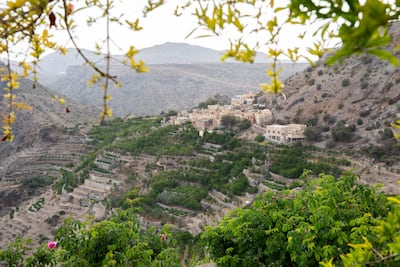
The three most famous villages in Jebel Akhdar are Al Aqer, Al Ayn and Al Shuraigah. They, along with Saiq, are producers of roses during March and April. During the rest of the year they grow everything from olives, grapes and figs to apricots, pears, apples, peaches, pomegranates, walnuts and almonds.
The star of the March and April season is the fragrant pink Al Muhammadi rose, also known as Damask rose, and which can also be found in Iran.
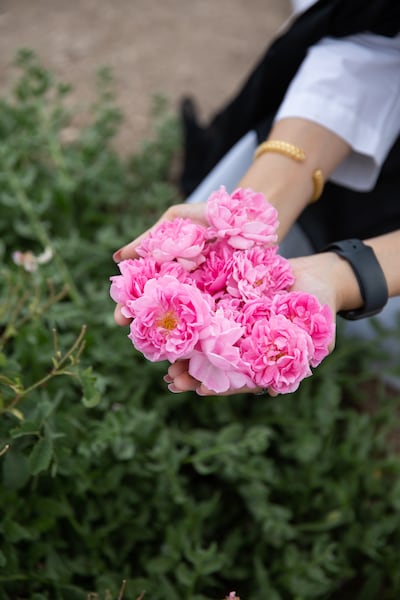
In April, pickers work in the early morning or late afternoon to harvest the flowers. The freshly picked roses are then taken to distillation centres so they can be processed. The centres are usually found in the larger homes of farmers living outside the terraced villages.
Picked roses are placed in a cloth or a scarf and often carried on the heads of pickers. Bilal Hussain, a picker from Bangladesh who works in one of the rose gardens, is carrying a bunch of flowers weighing almost 11 kilograms.
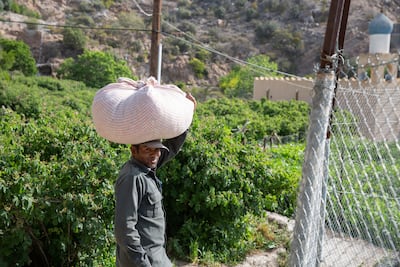
Harvesting roses is still largely carried out by the ageing population in the villages. Omani villager Nasser, 80, walks up a stone stairway with freshly picked roses wrapped in a cloth on his head in Al Ayn village. Nasser has his own rose garden and factory where he processes the flowers.
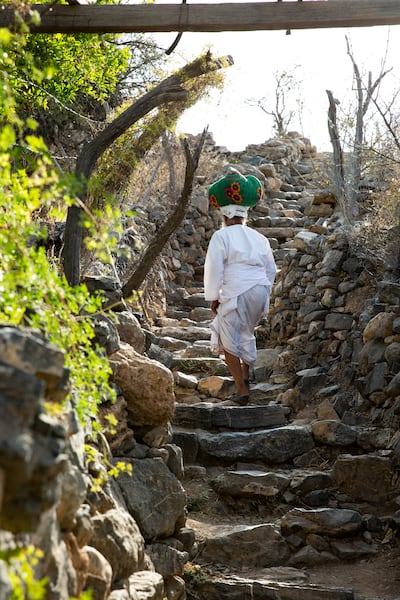
Picking the roses requires special care. The flowers have to be plucked in a way that preserves the petals until they are used for distillation.
Tour guide Marwan Suqri, 25, a resident of Saiq village, demonstrates below how roses are picked by holding it at the base and using the thumb nail to cleanly cut the stalk.
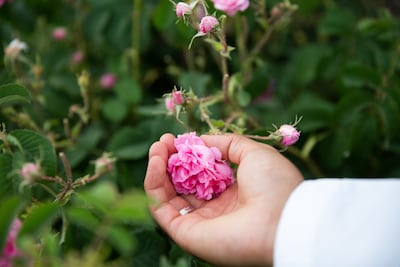
Suqri, who was born in Jebel Akhdar, works as a guide for Al Fawah Speciality Perfumes in his spare time. Cultural tourism is evident in the villages with perfume companies organising tours for tourists to help them understand how their products are made. The tours usually include hiking as well as picking roses, and a visit to the local distillation plant. Tour packages can range from five Omani riyals ($13) to 30 Omani riyals, depending on the type of tour.
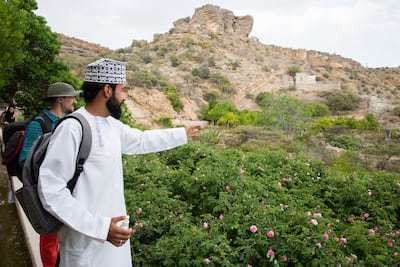
Tourists park and walk through the ancient village of Al Aqer, pictured here with Alila Jabal Akhdar hotel behind it, to see the rose gardens. Many of the buildings in the village have been renovated and renewed in recent years, with some now converted as guesthouses, cafes and even a museum.
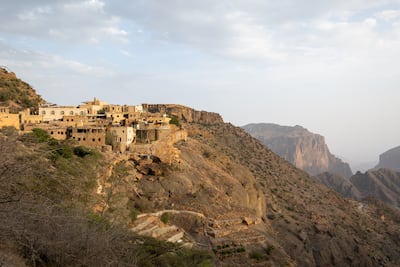
Once the roses are picked, they are transported to the distillation factories to be processes into the fragrant water or oils using traditional and modern methods. About 18 farming families in Jebel Akhdar operate the growing, picking, as well as the processing of the roses. The products are then sold to tourists, businesses, herbal shops, supermarkets and hotels.
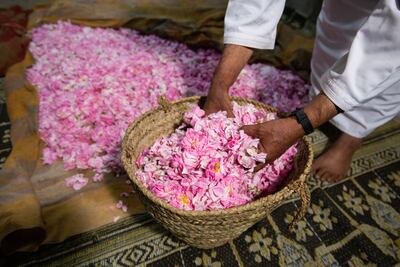
It takes about 1.5kg of rose petals to create 700 millilitres of traditional rose water.
Below, Abdullah Salim Al-Thani from Jebel Akhdar covers the rose petals to keep them moist before processing in his factory behind his house. Rose petals are stored with moisture under a cloth before being processed so they do not dry out.
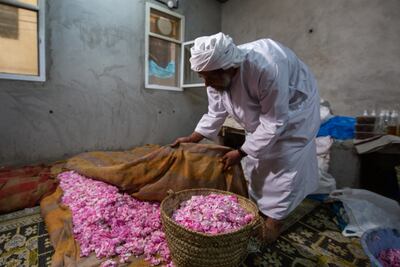
Al-Thani, 60, who is originally from Al Shuraigah village, now lives in Seeh Qatanah, where his factory and home are.
His factory still uses a traditional rosewater processing system. A gas-fuelled ground fire first steams the rose petals. As the steam rises, cold water is added into the round dish tops, which causes the steam inside the compartments to condensate. The condensation drips down an inverted cone into a steel bowl, which is how the rosewater is produced. This system is a simple gradual distillation technique that creates smoky brown distilled rosewater.
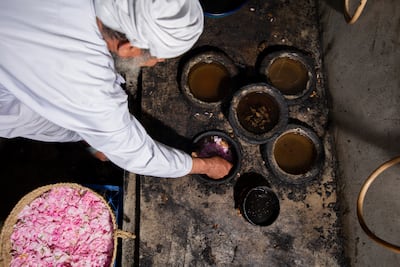
Al-Thani has been harvesting roses for more than 50 years, having first worked with his father in the rose factory when he was a child.
The traditional distillation system creates a smoky rosewater, while clear rosewater is extracted from it by using a similar technique but with a modern distillation process that removes all impurities.
Tour guide Suqri holds the two different types of rose water below.
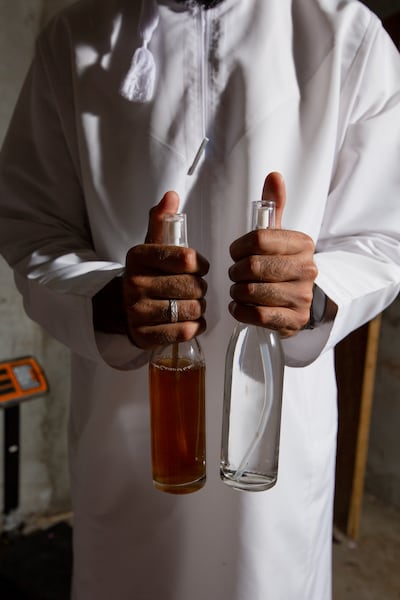
Al Fawah Speciality Perfumes, the company for which Suqri works as tour guide, is owned by Al-Thani's brother, Ghanim, and his business partners Hamdan Al-Suqri and Saleh Al-Subaihi.
They started the company in 2017, after inheriting the profession from their families. The three partners, who studied engineering in college, were able to develop a more scientific process of extraction of pure aromatic waters and essential oils. By working with traditional producers such as Al-Thani, they are able to share their unique history of rosewater manufacturing and also keep the century-old traditional alive.
Scroll through the gallery for more pictures from the rose petal harvest in Jebel Akhdar, Oman:
